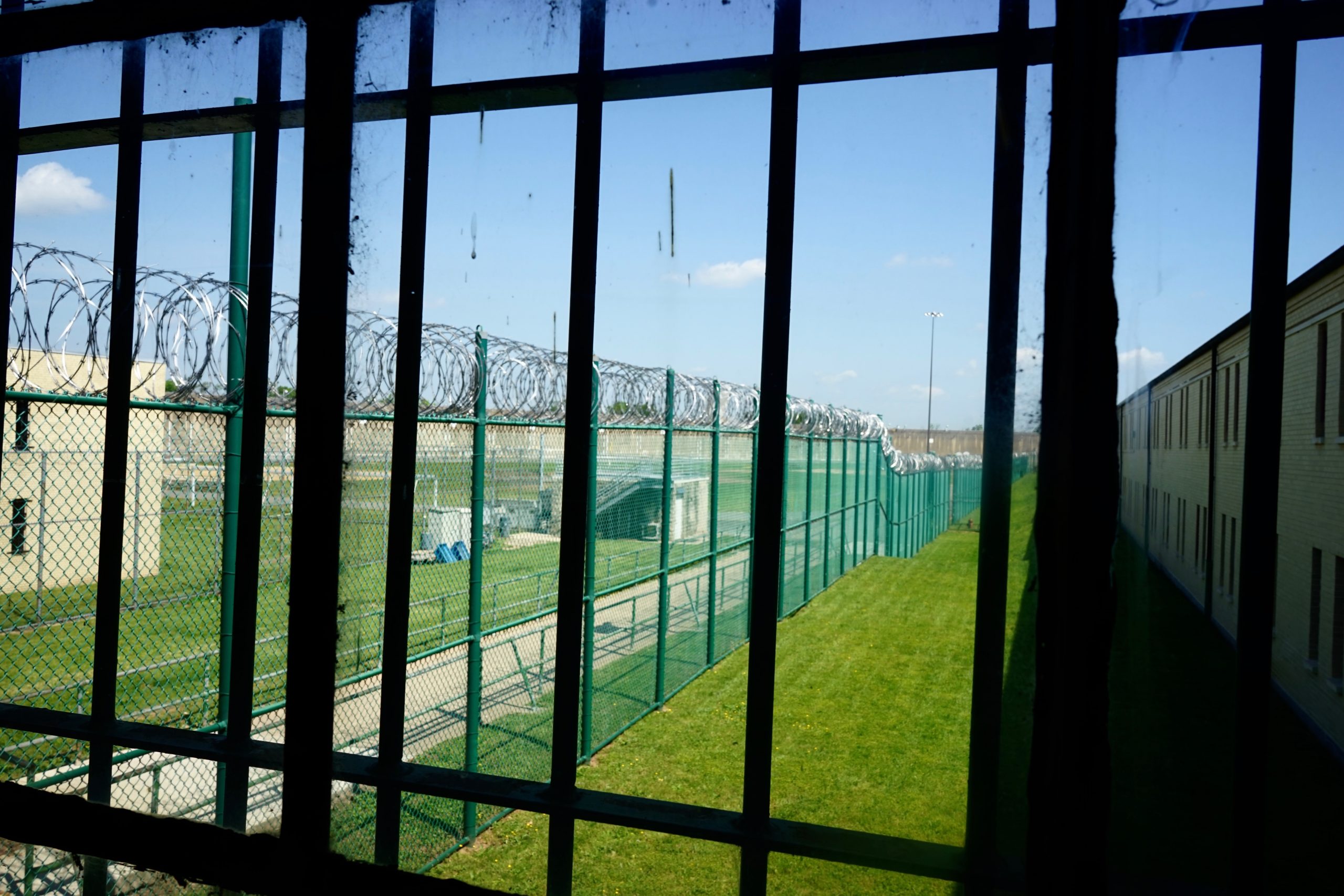Prisoner rights are an essential component of the justice system, requiring our attention and understanding. Millions of individuals around the world are incarcerated, and their rights often remain neglected in broader discussions about justice and rehabilitation. Examining the lives of prisoners and their rights is vital not only for ensuring humane treatment but also for fostering their successful reintegration into society.
In this in-depth guide, we aim to shed light on the complexities surrounding prisoners' lives, their rights, and the systemic challenges they encounter. This resource addresses critical questions such as what rights prisoners possess, how these rights are safeguarded, and the obstacles they face during and after incarceration.
By exploring legal frameworks, international standards, and real-world examples, this article seeks to educate and inform readers about the importance of respecting prisoners' rights. It also advocates for a more just and equitable justice system that prioritizes fairness and dignity.
Read also:Unveiling The Inspiring Journey Of Freemantle Xavier A Visionary In The Tech World
Table of Contents
- Introduction to Prisoner Rights
- Basic Human Rights of Prisoners
- International Laws Protecting Prisoners
- Challenges Facing Prisoners
- Rehabilitation and Reintegration
- Mental Health in Prison
- Prisoner Rights in Different Countries
- Family and Communication Rights
- Educational and Vocational Opportunities
- Conclusion and Call to Action
Understanding the Importance of Prisoner Rights
When an individual is incarcerated, they do not forfeit their fundamental human rights. Recognizing and understanding the lives and rights of prisoners is crucial for upholding a fair and just society. The rights of prisoners are safeguarded by various national and international laws, ensuring that even while their liberty is restricted, they retain their basic human dignity.
Prisoner rights encompass a wide range of protections, including freedom from torture, access to healthcare, and fair treatment. These rights are not only significant for the individual but also contribute to the overall well-being of society by promoting rehabilitation and reducing recidivism.
This section provides an overview of why prisoner rights are important, the historical development of these rights, and the foundational principles guiding their implementation. By acknowledging the importance of prisoner rights, we can work toward creating a more humane and equitable legal system.
Essential Human Rights for Prisoners
Freedom from Torture and Cruel Treatment
One of the most fundamental rights of prisoners is the right to be free from torture and inhumane treatment. This principle is enshrined in international treaties such as the United Nations Convention Against Torture (UNCAT). The prohibition of torture applies universally, irrespective of the crime committed by the prisoner. Ensuring this right is respected is essential for maintaining the dignity and humanity of incarcerated individuals.
Access to Quality Healthcare
Prisoners have the right to access adequate healthcare services, including both physical and mental health care. Meeting their health needs while they are incarcerated is crucial for their well-being. Studies reveal that many prisoners suffer from untreated medical conditions, emphasizing the need for improved healthcare systems in correctional facilities.
According to the World Health Organization (WHO), prisoners often face higher rates of infectious diseases such as tuberculosis and hepatitis. Addressing these health disparities is critical for protecting prisoners' rights and promoting public health.
Read also:Xavier Basketball A Legacy Of Excellence And Community
Global Legal Frameworks for Protecting Prisoners
International laws play a crucial role in safeguarding the rights of prisoners. The Universal Declaration of Human Rights (UDHR) and the International Covenant on Civil and Political Rights (ICCPR) form the foundation for protecting prisoners' rights on a global scale.
Additionally, the United Nations Standard Minimum Rules for the Treatment of Prisoners, known as the Nelson Mandela Rules, offer detailed guidelines on how prisoners should be treated. These rules emphasize respecting prisoners' dignity, ensuring fair treatment, and facilitating their rehabilitation.
- Universal Declaration of Human Rights (UDHR)
- International Covenant on Civil and Political Rights (ICCPR)
- Nelson Mandela Rules
Key Challenges Prisoners Encounter
Overcrowding in Correctional Facilities
One of the most pressing challenges faced by prisoners globally is overcrowding. Overcrowded prisons lead to inadequate living conditions, limited access to resources, and heightened tensions among inmates. This issue is particularly acute in developing countries, where resources are limited, and the prison population continues to grow.
Discrimination and Systemic Bias
Prisoners frequently encounter discrimination based on race, ethnicity, gender, or socioeconomic status. This bias can manifest in various ways, including unequal treatment by prison staff, restricted access to educational programs, and disparities in sentencing. Addressing these systemic issues requires a commitment to reform and accountability within the justice system.
The Role of Rehabilitation and Reintegration
Rehabilitation is a cornerstone of the justice system, focusing on transforming prisoners into productive members of society. Effective rehabilitation programs aim to reduce recidivism by addressing the root causes of criminal behavior and equipping inmates with the skills and support needed for successful reintegration.
Reintegration programs often include vocational training, education, and mental health services. These initiatives are essential for preparing prisoners to reintegrate into society upon release, reducing the likelihood of reoffending, and promoting long-term societal benefits.
Addressing Mental Health in Prisons
Mental health is a significant concern for many prisoners, with high rates of mental illness reported in correctional facilities. The stigma surrounding mental health issues often prevents prisoners from seeking help, worsening their conditions and affecting their ability to reintegrate into society.
Providing access to mental health services in prisons is vital for addressing this issue. Programs that focus on counseling, therapy, and peer support can make a substantial difference in improving prisoners' mental well-being and facilitating their rehabilitation.
Prisoner Rights Across the Globe
United States
In the United States, prisoners' rights are protected under the Eighth Amendment, which prohibits cruel and unusual punishment. Despite these protections, challenges such as overcrowding, inadequate healthcare, and racial disparities persist. Advocacy groups continue to push for reforms aimed at improving conditions and ensuring fair treatment for all inmates.
Australia
Australia has implemented several measures to protect prisoners' rights, including independent oversight bodies and comprehensive healthcare services. However, issues such as the overrepresentation of indigenous individuals in prisons highlight the need for ongoing reform and cultural sensitivity in the justice system.
The Importance of Family and Communication Rights
Prisoners have the right to maintain contact with their families, which is crucial for their emotional well-being and successful reintegration. Communication rights include access to phone calls, letters, and visits, ensuring that prisoners remain connected to their support networks.
Technology has enhanced communication options, with video conferencing and digital messaging becoming increasingly available in some prisons. However, access to these technologies remains limited in many facilities, underscoring the need for continued improvement.
Empowering Through Education and Vocational Training
Education and vocational training are vital components of prisoner rehabilitation. Providing inmates with access to educational programs enhances their skills, boosts their confidence, and improves their employment prospects upon release. Studies indicate that prisoners who participate in educational programs are significantly less likely to reoffend.
Vocational training programs focus on equipping prisoners with practical skills that are in demand in the labor market. By offering these opportunities, correctional facilities can help inmates prepare for successful reintegration into society, reducing recidivism rates and promoting economic stability.
Moving Forward: A Call to Action
Comprehending the lives and rights of prisoners is essential for fostering a just and equitable society. This comprehensive guide has explored various aspects of prisoner rights, from basic human rights to international laws and the challenges faced by inmates worldwide. By addressing these issues and advocating for reform, we can create a more humane and effective justice system.
We encourage you to take action by sharing this article, engaging in discussions about prisoner rights, and supporting organizations working toward justice reform. Together, we can make a meaningful difference in the lives of prisoners and contribute to a safer, more inclusive society.
For further insights, explore related articles on our website and stay updated on the latest developments in prisoner rights and justice reform.


